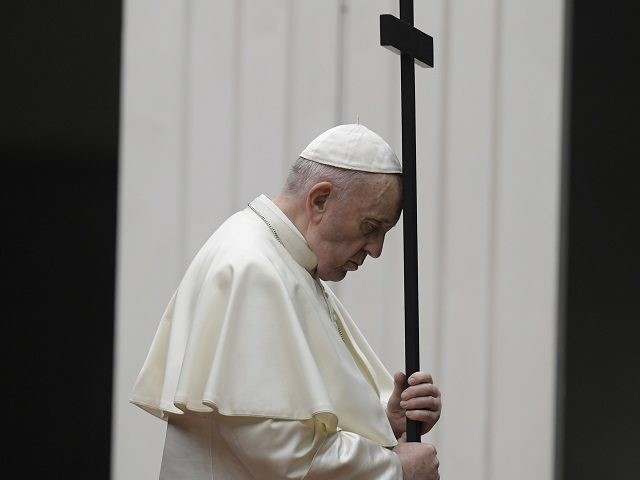ROME — Pope Francis made an impassioned appeal Sunday, urging Christians to avoid gossiping about others, which he called “a plague worse than COVID.”
“When we see a mistake, a defect, a slip-up, in some brother or sister of ours, usually the first thing we do is to go and tell it to others, to gossip,” the pope lamented in his weekly Angelus address in Saint Peter’s Square. “Gossip closes the heart of the community and breaks the unity of the Church.”
“The great gossip-monger is the devil,” Francis continued, “who always goes about saying bad things about others, because he is the liar who tries to divide the Church, to alienate brothers and sisters and not to make community.”
“Please, brothers and sisters, let us make an effort not to spread gossip,” he said. “Gossip is a plague worse than COVID! Let’s make an effort: no gossiping.”
In his Angelus message, the pope was reflecting on the gospel reading of the day, in which Jesus speaks of fraternal correction.
“To correct the brother who made a mistake, Jesus suggests a pedagogy of rehabilitation,” Francis said. “Jesus’s pedagogy is always a pedagogy of rehabilitation; He always tries to rehabilitate, to save.”
“In the first place he says: ‘Go and tell him his fault, between you and him alone,’ that is, do not publicize his sin,” the pope continued. “It is a question of approaching your brother with discretion, not to judge him but to help him realize what he has done.”
It is not easy to put this teaching of Jesus into practice, he continued, because often “there is a fear that the brother or sister will react badly” and “sometimes there is insufficient trust with him or her” and yet this is “the Lord’s way.”
It may happen that, despite my good intentions, the first intervention fails, the pope noted, and yet it is not Christian to simply “wash our hands” of the situation and give up.
In this case, Jesus says to “take one or two others along with you, that every word may be confirmed by the evidence of two or three witnesses.” Here, the job of the two witnesses is “not to accuse and judge, but to help,” Francis added.
Even the love of two or three brothers can be insufficient, because of the person’s stubbornness, he continued, and in this case, Jesus says we should “tell the community,” that is, the Church.
When this final measure is insufficient, Jesus says: “if he refuses to listen even to the church, let him be to you as a Gentile and a tax collector.”
“This expression, apparently so contemptuous, in reality invites us to put our brother in God’s hands,” Francis observed. “Only the Father will be able to show a love greater than that of all the brothers put together.”
“It is therefore not a question of a condemnation without appeal, but of the recognition that at times our human attempts can fail, and that only being before God can put the brother before his own conscience and the responsibility for his actions,” he said.
“If things don’t go right, silence and prayer for the brother and sister who have made a mistake, but never gossip,” he concluded.

COMMENTS
Please let us know if you're having issues with commenting.